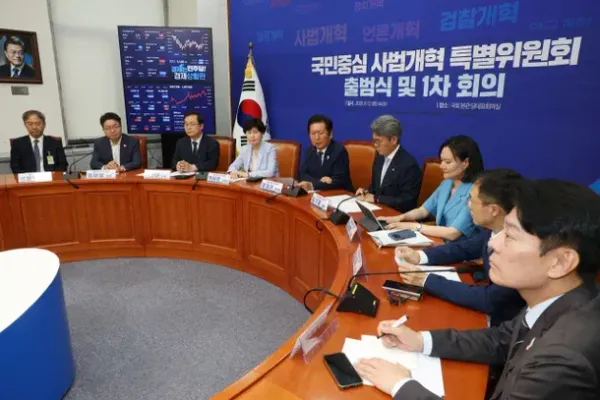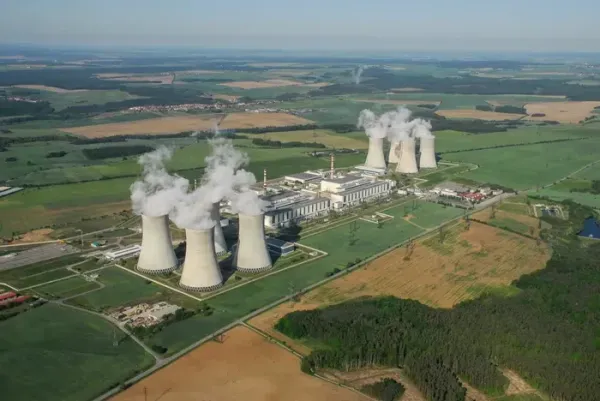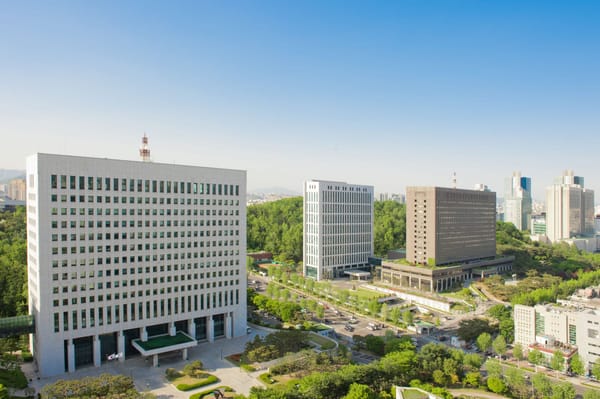Photo: Justice Minister Choo Mi-ae speaks at the preparation committee for the Corruption Investigation Office. Credit: Website of the Preparation Committee for the Corruption Investigation Office.
The simmering tension between South Korea’s two leading law enforcement officials boiled over on November 24, when Justice Minister Choo Mi-ae 추미애 법무부장관 suspended the Supreme Prosecutor Yun Seok-yeol 윤석열 검찰총장, the first such suspension in South Korean history. Based on available news, below is what happened, how the South Korean government and politicians are reacting, and what will happen next in the ongoing saga between the Justice Minister and the Supreme Prosecutor.
WHAT HAPPENED?
- Justice Minister Choo Mi-ae exercised her authority to suspend the Supreme Prosecutor Yun Seok-yeol, citing six allegations: (1) inappropriate meeting with Hong Seok-hyeon 홍석현, owner of JoongAng Ilbo 중앙일보, a major conservative newspaper; (2) illegal surveillance of the judges assigned for major cases; (3) obstruction of internal investigation against his closest subordinates; (4) strategically leaking information on pending investigations to the press; (5) obstruction of internal investigation against himself, and; (6) failure to maintain political neutrality. Yun, who was already recused from several cases involving himself and his close associates, is now entirely relieved of his duties as a result of the suspension. This is the first time in South Korean history that the Justice Minister suspended the Supreme Prosecutor from duty. Yun Seok-yeol is expected to file a court action challenging the suspension.
- Among the six allegations, the newest and arguably the most serious allegation is the illegal surveillance of judges. The Supreme Prosecutor’s Office disputed that it spied on the judges, claiming it only reviewed the judges’ previous rulings to assist the prosecution. The Justice Ministry’s allegations, however, cover much more than legal research. The research on the judges was conducted not out of the Public Prosecutor’s Office 검찰청’s Bureau of Trials 공판부, which is in charge of running courtroom litigation, but out of Bureau of Anti-Corruption 반부패부, the division in charge of investigating public officials. The information collected on the judges was not limited to past cases, but included family history, hobbies, involvement in civic groups, etc. In particular, Yun made use of the blacklist of judges previously compiled by Yang Seung-tae 양승태, former Chief Justice of the Supreme Court 대법원장 to identify hostile judges and push for their recusal. (During the previous administration, Yang compiled the blacklist to punish the judges who did not rule in accordance with the directives from then-president Park Geun-hye 박근혜.)
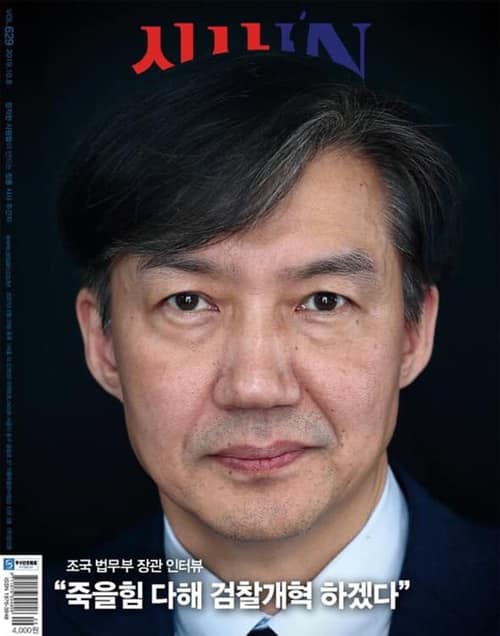
Photo: SisaIN magazine cover featuring the Justice Minister Cho Kuk, with the caption: "I would give my life for the prosecutorial reform." Credit: SisaIN.
- This incident follows the continuous tension between the Ministry of Justice 법무부 and the Supreme Prosecutor’s Office 대검찰청 for the past year. Prosecutorial reform was one of the top agenda items for President Moon Jae-in 문재인, as the Public Prosecutor’s Office 검찰청 has come under severe criticism of abusing its broad authority to conduct investigations and bring charges by selectively choosing its targets. Choo Mi-ae 추미애, a liberal heavyweight, was appointed as the Justice Minister in late 2019 after the previous Minister Cho Kuk 조국 resigned following a tsumani of raids and indictments from the PPO against Cho’s family, for such minor crimes as Cho’s wife allegedly forging a service certificate for her daughter’s college admission. (See TBR’s previous coverage of this topic here.) At the time, liberal supporters of Cho Kuk organized a series of Candlelight Protests 촛불집회 outside of the PPO office in Seoul, the largest demonstration since the protests that led to Park Geun-hye’s impeachment in 2017.
- Supporters of the Supreme Prosecutor Yun Seok-yeol praise him as a fearless and independent lawman who is unafraid to stand up to the powerful; critics allege Yun abuses the PPO’s authority to play politics and cover up his own corruption. In addition to the case against Cho Kuk’s wife, in which the prosecution is being nearly laughed out of the court, close subordinates of Yun have come under investigation for attempting to fabricate bribery cases against prominent liberal politicians, with Yun potentially implicated. (See TBR’s previous coverage of this topic here.) Yun Seok-yeol’s mother in law is under indictment for establishing a hospice without permit and illegally receiving over KRW 2.3b (USD 2m) in government subsidies. Yun’s wife Kim Geon-hee 김건희 is also under investigation for stock price manipulation and money laundering. According to the Ministry of Justice, the Supreme Prosecutor repeatedly rejected the Ministry’s request for an investigative interview, turning back internal investigators and sending back written questionnaires.
NOTABLE REACTIONS
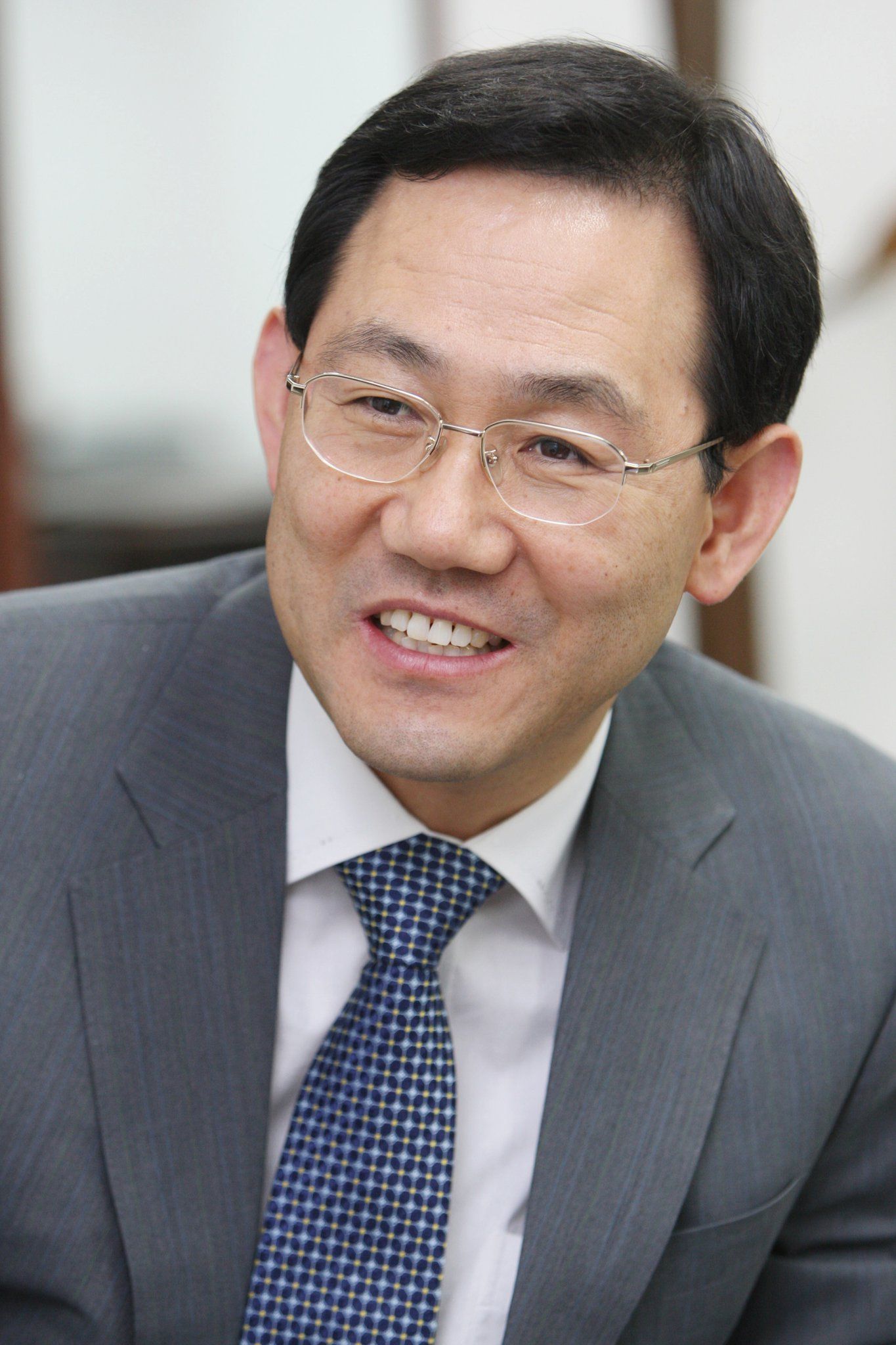
Photo: People Power Party Floor Leader and Assembly Member Ju Ho-yeong. Credit: Facebook page of the Assembly Member Ju Ho-yeong.
- The Democratic Party 민주당 called for Yun Seok-yeol to resign while stressing the importance of the newly established Corruption Investigation Office 공수처. Democratic Party Chairman Lee Nak-yeon 이낙연 said “it was difficult to hide my shock and disappointment at the news . . . the Supreme Prosecutor must make a decision on his tenure as a public official should.” Roh Ung-rae 노웅래, Executive Committee Member 최고위원 of the Democratic Party, said: “We must remember the fact that everyone is equal before the law, and the Supreme Prosecutor is no exception,” and added: “This is why the Corruption Investigations Office and prosecutorial reform cannot be delayed.” (See TBR’s previous coverage on this topic here.)
- The conservative opposition People Power Party 국민의힘 denounced the suspension while calling for the president to comment. PPP’s Floor Leader 원내대표 Ju Ho-yeong 주호영 said “the Justice Minister committed a lawless outrage. The President must weigh in on this outrage.” Assembly Member Kwon Yeong-se 권영세 said: “If the President does nothing in the fact of such unprecedented incident, it means he is either a fool who abdicated his duty, or a devious dictator who orchestrated all of this outside of the public’s eyes.”
- The Blue House 청와대, through its spokesperson Kang Min-seok 강민석, said President Moon Jae-in 문재인 received the report from the Justice Minister shortly before the suspension decision was announced, and had no comment. PPP Assembly Member Kim Ki-hyeon 김기현 argued: “No one would believe the Blue House statement. It is up to the president to appoint and terminate the Supreme Prosecutor; it is not something for Minister Choo to decide on her own.”
WHAT WILL HAPPEN NEXT?
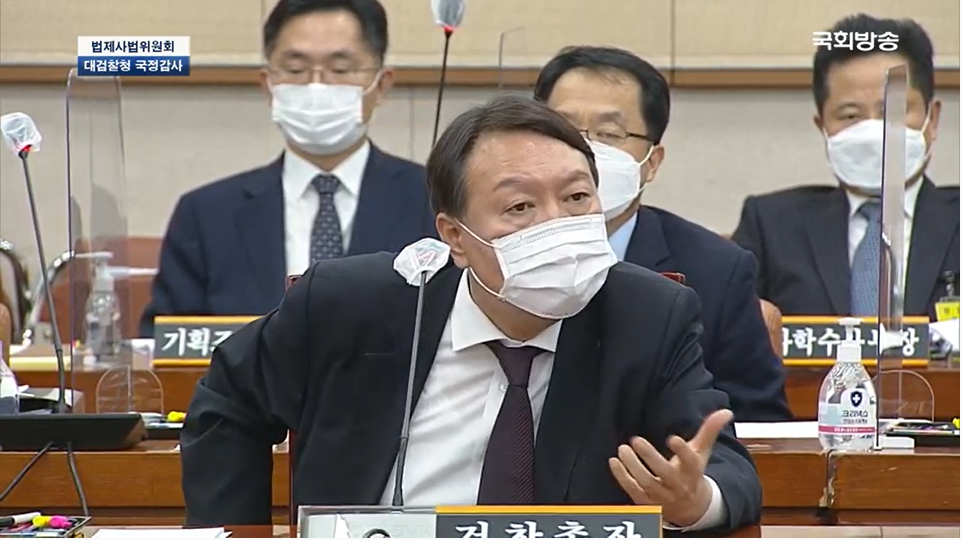
Photo: Supreme Prosecutor Yun Seok-yeol at the National Assembly. Credit: Screencap of National Assembly Television.
- Unless the court intervenes, Yun Seok-yeol will be referred to the Justice Ministry’s Prosecutor Disciplinary Committee 검사 징계위원회. The committee has seven members: the chair, who is the Minister of Justice; Vice Minister of Justice 법무부 차관; two prosecutors, designated by the Justice Minister and the Vice Minister; three attorneys and law professors designated by the Minister of Justice, usually by recommendations of the Korean Bar Association 대한변호사협회.
- The Prosecutor Disciplinary Committee has five levels of penalty: termination, relief from duty, suspension, reduction in pay, and censure. The penalty of reduction in pay and above requires the presidential approval. The committee decides the penalty based on majority vote. In this instance, however, Justice Minister Choo is expected to recuse herself. The committee operates similarly to a mini-trial; Yun Seok-yeol may be represented by his own attorney before the disciplinary committee.
- Yun Seok-yeol may or may not quit, but his likely future is in politics in either case. Yun, known to be a stubborn institutionalist, has shown a strong commitment to being a prosecutor as he held onto his post despite facing significant pressure. But since Yun was recused from the cases involving himself and his family, it was clear that his days as the Supreme Prosecutor was all but numbered. Even if Yun manages to survive the Disciplinary Committee, he is likely to emerge as a lame duck until his term ends in July 2021. Meanwhile, Yun’s strife with the Justice Ministry propelled him to be the top conservative presidential candidate for the election in 2022. (See TBR’s previous coverage here.) Yun previously indicated his willingness to throw his hat into the ring: “After I finish my term, I will deliberate on how I might serve our society and people.” With his suspension, the end of Yun’s term may be coming sooner than the official end date.





